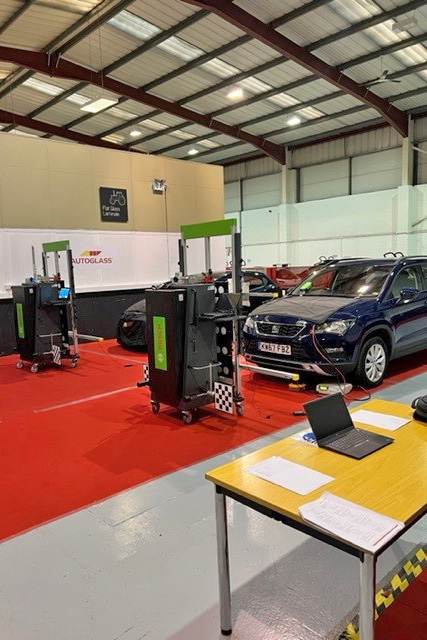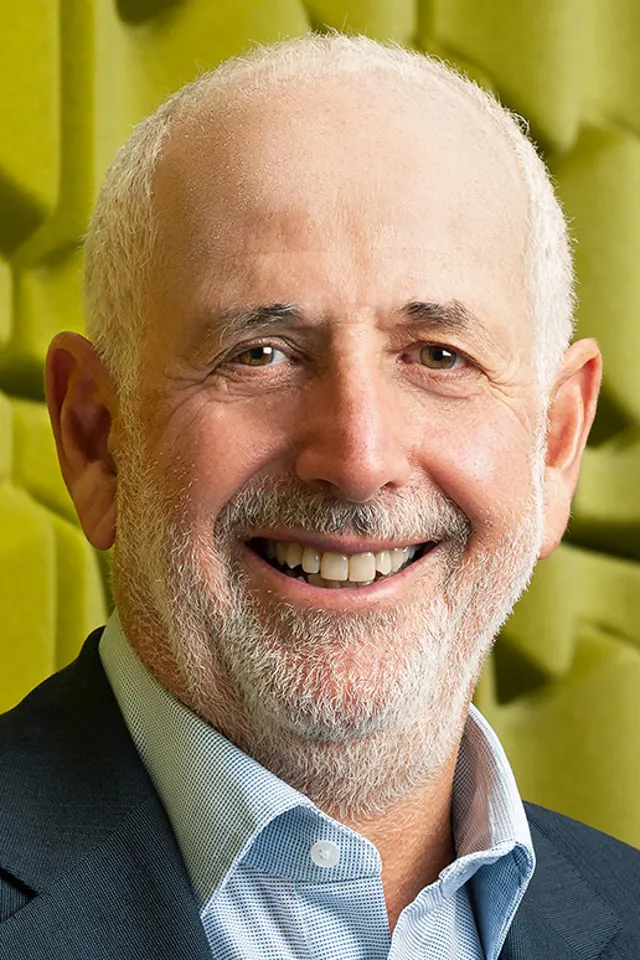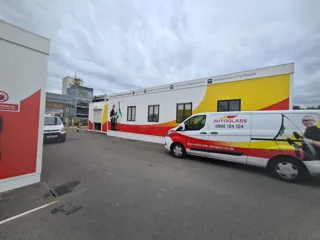Vehicle technology has evolved massively in recent years, with no industry sector left untouched.
Some of the biggest developments have come in safety, with the spread of advanced driver assistance systems (ADAS) such as autonomous emergency braking and lane-keeping helping to save countless lives.
Its uptake is due to expand further with European Commission regulation coming into effect this year making it mandatory for all new vehicles to include windscreen-fitted advanced safety cameras which allow for ADAS.
This, obviously, has an enormous knock-on effect for vehicle glass suppliers such as Autoglass, which now has to recalibrate these sensors to ensure they work correctly when replacing a windscreen.
“Our guys are now technologists as well as technicians,” says Gary Lubner (pictured), global CEO of Belron, the parent company of Autoglass UK.
“For me, that’s really good news. We love complexity, we love the fact you’ve got to be highly skilled and highly trained.
“I think this plays to all of our strengths because (preparing for recalibration) is not something you can just do overnight; we’ve been training our people and developing our systems for a long time.
“We’ve also been partnering with the world’s leading experts, such as Bosch, on equipment. There has been decades of investment and it’s really starting to bear fruit.”
He adds: “One point that does need to be hammered home is how important it is for the ADAS sensors to be recalibrated at the same time as a windscreen is replaced.
“Some of the noise out there is that the recalibration is just a kind of add-on we do after the job, but that couldn’t be further away from the truth.
“If you don’t really calibrate a vehicle properly and that sensor is just a couple of millimetres out, it’s genuinely a safety threat.
“We can’t stress enough how important it is to have your vehicle properly re-calibrated and it has to be done at the time you have your windscreen replaced.”
Changing business landscape
The rapid uptake of ADAS has also meant Autoglass has changed the way its technicians operate.
In 2014, around 90% of repairs were carried out by mobile technicians, leading the company to earmark 73 of its 100 sites for closure as the volume going through the network slumped.
However, the arrival of ADAS has reversed that policy. Vehicle manufacturers generally specify that recalibration work should be carried out on a level surface in good lighting conditions, meaning roadside and open-air sites are no longer suitable for repairs as they can result in mis-calibrations.
Last year, 24% of all windscreen replacements carried out by Autoglass required recalibration work, with that proportion only set to increase.
Autoglass now has 92 sites, with a mixture of traditional bricks-and-mortar locations as well as ‘pod-style’ facilities.
“I think the future will be a hybrid model,” says Lubner. “The pods – sort of mobile branches – are quite cheap to put up in car parks, but they are very secure. We can be very flexible with them and react to where the demand is.”
Four of the most recent pod-style centres were opened in retail car parks in Basildon, Colchester, Warminster and Brent Cross earlier this summer.
“We’ve got to have branches that are well-located, properly manned and serviced so we can offer drivers sites that are easily accessible to reduce the amount of time they spend off the road,” says Lubner.
“We don’t want fleet drivers having to drive around the back of industrial estates trying to find a branch.”

As part of its investment to enable the network to carry out recalibration work, Autoglass this year rolled out new Bosch Connected Recalibration tools across all its centres, meaning more than 99% of vehicles can be recalibrated in-house, reducing the need for dealership referrals.
However, Lubner says Belron is seeing an increasing number of manufacturers using ‘secure gateways’ to limit access to vehicle data which is essential to correctly recalibrate ADAS systems.
For recalibration, vehicle manufacturers need to grant access to the vehicle via their online portal and can monitor any work undertaken. A secure gateway is a barrier restricting or blocking access to the vehicle network.
Lubner says they lead to increased costs through licence fees and/or a pay-per-vehicle access cost, as well as increase the time needed to carry out the recalibration work.
“That limits our ability to compete,” he adds.
“All we want is a level playing field. We want to be able to provide the exact same service that an OEM can provide to let us compete on things like customer service, rather than restricting access to data.”
Belron has taken a test case against Fiat Chrysler Automobiles (now part of Stellantis) which has been referred by Germany to the European Court of Justice. It will be heard in the next few months.
“We are confident in this because what they are doing is anti-competitive, and it affects not only us for windscreen replacement, but it affects other people providing aftermarket services and, ultimately, it affects the customer,” says Lubner. “This is a big issue.”
Rising costs
Like almost every other business, Autoglass is also fighting rising costs, caused largely through the investments made in technology, as well as the Covid pandemic and the conflict in Ukraine.
“We have invested hundreds of millions in our business,” says Lubner.
“Sometimes people don’t understand – that’s our fault by the way, not theirs – what’s happening behind the scenes with the supply chain, the logistics, that we are training our technicians, that we are investing millions with Bosch on the tools.
“We’ve had issues with freight costs going up enormously. In some cases, we’ve seen container costs going up by 10 times – it’s been unbelievable.
“Glass costs have been going up, and for us to be holding on to these cost increases has been very difficult, so we’ve had to pass on some to customers.
“We were getting 100,000-odd pieces of glass from Russia, which we stopped on day one of the invasion, but that meant we had to find that 100,000 pieces of glass, which we managed to do through our global supplier links.
“All of that stuff means things are getting much more complex. They’re also getting more expensive. We try to be as efficient as we can with investing in technologies but, in the end, if the market is shifting, we have to adjust to that.”
Looking ahead, Lubner sees another year of uncertainty and volatility, with serious signs of a recession in the UK.
“I also have a pretty strong view of the damage that Brexit has done to the UK economy,” he says. “The fact we are paying more for our glass: the pound depreciated up to 20% with the Brexit vote and hasn’t really recovered from then.
“It has also affected our access to labour and materials. All these things are really challenging us.
“I can’t get too depressed about it though, because they are out of our control.
"What we can control is what we do inside Autoglass, which is focus on our customers, make sure we understand what their needs are, and continue to deliver for them.”






















Login to comment
Comments
No comments have been made yet.